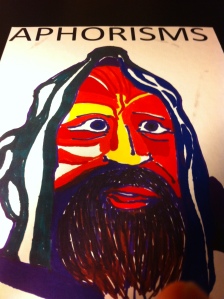 The storytelling stage is increasingly filled with personal memorate, so we tellers can often be found mining our past experiences for material. I thought my childhood was pretty much played out, when, while planning a Chanukah concert, I remembered this:
The storytelling stage is increasingly filled with personal memorate, so we tellers can often be found mining our past experiences for material. I thought my childhood was pretty much played out, when, while planning a Chanukah concert, I remembered this:
From ages three to eight, I dreamed of becoming an actress. I was quite a ham, for a little Jewish girl. Randi was the shy one, the serious sister. She was three years ahead of me in school, had taught me to read, and had no great interest in standing out. I once asked Mrs. Stoddard, the school music teacher, to call her from her classroom so she could get on stage with me in the big auditorium and serenade the first grade. We sang the funny songs we used to sing together in the bathroom. I don’t think she’s ever forgiven me for that.
We lived in Long Island, New York. As Jews, we were in the vast minority in our elementary school, even though our synagogue was nearly across the street. We had no Jewish families on my block, and I had no Jewish kids in my class. It’s not that everyone was the same, however. We had a crush on our beautiful grown-up Finnish neighbor who read movie magazines and let us brush her hair, and a Russian family lived down the street. So it didn’t bother me that we were different; I just wanted to be sure to do the right thing.
The winter I was in the second grade, I asked my dad if I had to sing carols in music class. He couldn’t have cared less; he had long since left the ways of his Orthodox parents behind, and good riddance. He said no, I didn’t have to sing if I didn’t want to. So I asked my music teacher, a formidable older woman with bat wing arms and an enormous bosom, if I could just mouth the words instead. I guess I thought that would draw less attention during the month before Christmas.
Now the way I remember this is it was out of the blue and not my idea: Mrs. Stoddard asked me to get on stage and sing Chanukah songs to the school assembly. I was one of the very few altos in the grade and not a good singer; if she could have had her way, Mrs. S. probably would have had me mouth everything we sang throughout the year. But I remember being thrilled. I also remember the cute boy next door (yes, we had our requisite cute boy next door) sprawled out in the first row smiling up at me as I prepared to serenade. And I sang: Ma’oz Tsur. Dreydl, Dreydl. Mi Y’malel. I remember happily singing all the Chanukah songs I’d learned in Hebrew school both in Hebrew and English, without the slightest bit of hesitation, fear or embarrassment. It was the 1960s, and Israel had not yet even won the Six-Day War. I had not yet bought a blue-and-white Kiss Me I’m Jewish button. But I was Jewish and I was proud.
I don’t know what changed in me soon after, or why. Until this day, I have never been as comfortable expressing my Judaism to non-Jews. I get a twinge when the woman behind me sees me buy matzoh meal in the supermarket. Not to mention that it took me 30 years to feel comfortable again performing in public.
When I look back at that day, singing my little Jewish heart out in front of 100 or more kids, I wonder who that little girl was. I’d sure like to know her better.

